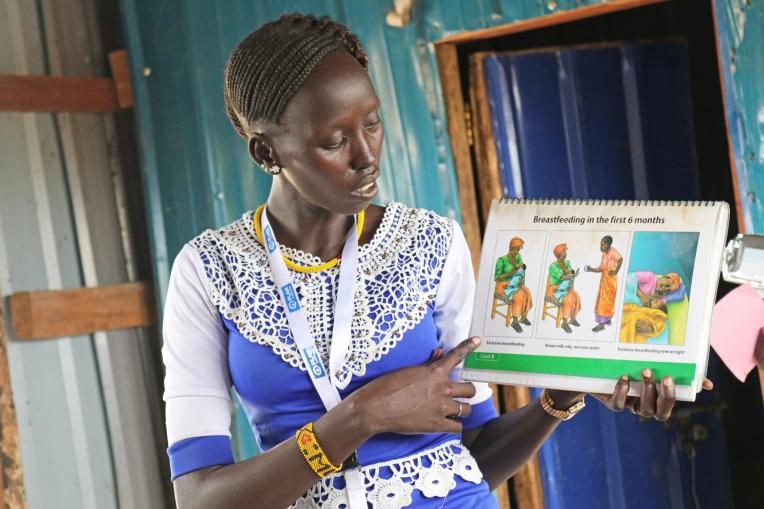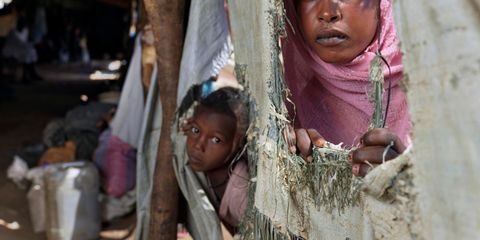See how Judisa, a community nutrition worker, is providing life-saving support to vulnerable families hit by the food crisis in South Sudan.

Judisa is a community nutrition worker who has extensive knowledge and skills acquired while working as nutrition volunteer for Plan International for the past 2 years.
The key drivers of acute malnutrition in the areas where Judisa works are multifaceted, including severe food insecurity, poor eating practices, high prevalence of disease, inadequate sanitation and hygiene practices, limited access to health and nutrition services caused by conflict, floods and disruptions related to COVID-19.
Judisa walks about 3 hours a day to reach and return to her home from the nutrition centre, often she walks through the bush and sometime alone. When she reaches the centre, she usually finds many mothers are waiting for her with the hope of obtaining supplementary food sachets for their children.
Supporting mothers
With her experience of dealing with children and mothers, she provides training and support on breasting feeding practice. “When I see children’s faces, it hurts me a lot. Often they go hungry or eat less. I thought I could support them through the nutrition centres, that’s why I joined Plan International as a nutrition worker.”
Judisa teaches young mothers how to feed their children a healthy diet and other parenting skills to ensure children stay healthy and develop properly. She keeps meticulous records and monitors the nutritional status of children under 5 years old, pregnant and breastfeeding women who have been referred to the centre by community volunteers.
Judisa says she feels proud that she is helping treat malnourished children and mothers in her community as well as equipping them with vital knowledge on preventing malnutrition. “If women are given opportunities they can also make difference, which I want to show in my community through my work with Plan International.”
Nutrition centres
Around 7.2 million people in South Sudan – approximately 60% of the population – are predicted to face acute food shortages this year. This includes 1.4 million children under the age of 5 and almost 500,000 women who are pregnant or breastfeeding.
Families have told us this year is the most severe period of hunger in living memory, and the worst since South Sudan became an independent country in 2011. In response to the crisis, Plan International with support from the World Food Programme has opened nutrition centres in 21 communities in Pibor to treat cases of malnutrition among children under 5 as well as pregnant and breastfeeding women.
Categories: Emergencies

